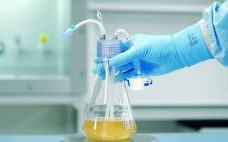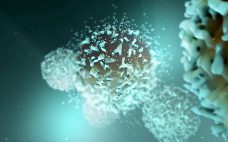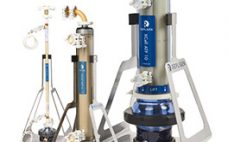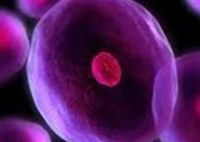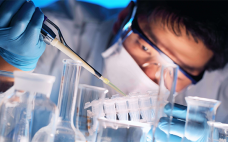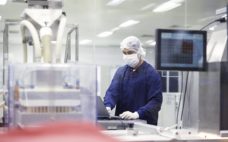This webcast features: Orville Dean Stuart, Technical Regional Sales Manager, Thermo Fisher Scientific This webinar presents the use of a handheld Raman analyzer with onboard chemometrics to verify the identify and monitor the quality and batch-to-batch variability of both dry powder chemically defined media and ready-to use liquid cell culture media. While scans of cell culture media using Thermo Scientific’s TruScan RM handheld Raman analyzer produce spectra with good Raman features, due to similar constituents and formulations, the TruTools add-on…
Upstream
Transform Cell Expansion: Expand Outside the Hood
This webcast features: Charles Meadows, Head of Product Management, Smart Consumables, Sartorius-Stedim Biotech Cell Culture expansion from vial to seed bioreactor is done by passaging culture through successively larger Erlenmeyer shake flasks. Sampling, media feed, inoculation and transfers are done non-aseptically by unscrewing the cap in a biosafety cabinet (BSC). Contaminated expansions due to non-aseptic technique are abandoned costing time and materials. Sartorius leveraged novel bottle closure manufacturing technology to create MYCAP® CCX. MYCAP® CCX combines tubing for aseptic fluid…
ekko™: How Acoustics Cell Processing is Changing Cell and Gene Manufacturing
This presentation features: Kevin Lannon, Director of Global Sales, FloDesign Sonics With an ever-increasing number of cell and gene therapies approaching commercialization, the industry is looking for scalable manufacturing solutions. In order to truly see a step change in improvement, it is crucial for tool providers to design equipment specifically for the GMP environment and the unique needs of cell and gene processing. This presentation will outline: How acoustophoresis and the ekko™ platform is changing the cell processing paradigm Overview…
Bioproduction Media Optimization Through Spent Media Analysis
This webcast features: Matthew Smonskey, R&D Scientist, Gibco Bioproduction Services Group, Thermo Fisher Scientific Individual cell lines have unique nutritional requirements which may not be satisfied using catalog media. These deficiencies often result in less than optimal recombinant protein yields during a bioproduction process. This presentation will discuss resources available to identify these media limitations and options for designing custom media formulations in order to maximize protein yields. Watch the recorded webcast below.
High Productivity Harvest – Intensify Harvest and Displace Depth Filtration in Fed Batch Cell Culture
This webcast features: John Bonham-Carter, Director of Upstream Sales, Repligen High Productivity Harvest (HPH) is a novel application developed by Repligen that enables you to harvest a fed batch bioreactor in a fully sterile manner while eliminating both centrifugation and depth filtration. A 0.2µm filtered, closed system and single step process using the XCell™ ATF System, HPH can significantly increase yields above industry standards and generate a sterile clarified batch harvest ready for either batch or continuous chromatography. This webinar…
Webcast: Accelerating Vaccine Production with Non-Viral Cell Engineering
This webcast features: Victor Ayala, PhD, ABL Inc. Protein expression for manufacturing falls into one of two basic categories: stable cell line generation or transient transfection. While stable cell lines provide consistency in product quality and quantity, they are also expensive and time-consuming especially in early discovery and development phases. In this webinar, a fully-scalable cell engineering technology employing a transient transfection strategy will be discussed. This technology has allowed for the efficient and cost-effective evaluation of vaccine candidates in…
Bioproduction Efficiencies Gained Using the New ExpiCHO Stable Production Medium
This webcast features: Shreya Lowmaster, Msc, Field Applications Scientis, Thermo Fisher Scientific Transition from the transient to stable production workflow exclusively in CHO cells with the new Gibco™ ExpiCHO™ Stable Production Medium and cGMP banked Gibco™ ExpiCHO-S™ cells. Transient titers in shake flasks and stable clone titers in a 50L Thermo Scientific™ HyPerforma™ single-use bioreactor were greater than 3.0 g/L in a fed-batch process with comparable product quality.
Developing a Whole Genome CRISPR Screen to Improve CHO Cells for Biomanufacturing
This webcast features: Jamie Freeman, PhD, Product Manager, Horizon Discovery While great strides have been made in increasing the yield of biotherapeutic proteins, these have been achieved mainly through process improvement with a particular focus on media and feed strategies. Aside from single gene knockouts to allow for metabolic selection systems, the CHO host itself remains largely unchanged from that which was used thirty years ago. This webcast will cover how Horizon Discovery has used the recently released annotated sequence…
Targeted Locus Amplification for Transgene Sequencing in rCHO Clones Expressing Therapeutic Lysosomal Enzyme
This webcast features: Vishal Agrawal, PhD, Scientist II, Cell and Molecular Biology, Biomarin Pharmaceutical Inc. and Joseph Abad, Field Applications Scientist, MaxCyte. Transgene site of integration dictates clonal stability and the long term transcriptional activity of gene of interest in recombinant CHO cells. In this presentation, we will discuss the application of targeted locus amplification (TLA) technology to identify genomic sites of transgene integration and integrity of transgene sequence itself to assess the suitability of recombinant CHO clones as a…
Insulin Improves Cell Growth and Influenza Yield in a HEK293 Suspension Cell Line
This webcast features: Aziza Manceur, Research Officer, National Research Council Canada To produce large quantities of vaccines in a rapid and cost-effective way is the main challenge that the vaccine industry is facing. Major changes to current bioprocesses are difficult to implement due to costs associated with the regulatory approval process. Therefore, we propose to use insulin, a protein currently used and approved in several processes and production platforms, as an additive to boost cell growth and viral production. The HEK293SF-3F6 cell…


